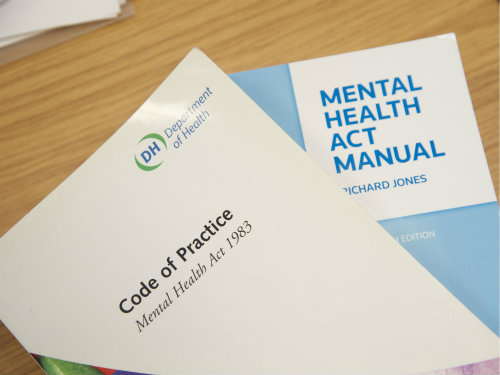
Mental health bed occupancy has hit its highest level in at least five years, the latest NHS England figures show.
Mental health beds had an average occupancy of 89.5% in 2014-15, the highest level in the dataset’s five year history. The figure marks a rise in occupancy of 2.9% on 2010-11 levels. The number of available beds fell from 23,515 in April 2010 to 21,374 in April 2015, a drop of 9.1%.
The Royal College of Psychiatrists recommends a ward occupancy level of 85% for effective care.
The NHS England data does not break-down occupancy by type of mental health ward. It will include wards with traditionally lower occupancy levels, such as rehab and long-stay beds, and units which traditionally have higher occupancy such as acute admission wards.
However, a separate dataset published by NHS Choices rating the performance of mental health trusts in England, focuses specifically on crisis care and gives a snapshot of the strain on acute beds.
The NHS Choices data includes acute bed occupancy figures for 48 trusts. Of these, 10 trusts reported 100% occupancy and a further 18 had occupancy levels over 90%. Eight trusts said their acute bed occupancy was below 85%. The figures do not include patients on leave.
Over the past two years social workers have repeatedly raised concerns over problems accessing beds, or alternatives to hospital admission, for people in mental health crisis. They say the pressure on beds has increased due to cuts to social care and wider support, such as welfare, that can help keep people well and out of hospital.
Community Care has highlighted several issues with the crisis care system. Research has revealed cuts to community-based support, a rise in patients being sent long distances for care due to bed shortages and a series of deaths linked to bed pressures.
NHS England has established a mental health taskforce to set out proposals to improve care over the next five years, including crisis services. The taskforce, chaired by Mind chief executive Paul Farmer, will report later in the year.
Today, Farmer said that a survey to inform the group’s work had already received more than 20,000 responses.
In a blog he wrote: “The huge response has shown us the strength of feeling around the need to improve services for mental health. There is a clear consensus among everyone we have spoken to so far that things need to happen – and urgently”.




 Bournemouth, Christchurch and Poole
Bournemouth, Christchurch and Poole  Hampshire County Council
Hampshire County Council  Lincolnshire County Council
Lincolnshire County Council  Norfolk County Council
Norfolk County Council  Northamptonshire Children’s Trust
Northamptonshire Children’s Trust  South Gloucestershire Council
South Gloucestershire Council  Wiltshire Council
Wiltshire Council  Wokingham Borough Council
Wokingham Borough Council  Children and young people with SEND are ‘valued and prioritised’ in Wiltshire, find inspectors
Children and young people with SEND are ‘valued and prioritised’ in Wiltshire, find inspectors  How specialist refugee teams benefit young people and social workers
How specialist refugee teams benefit young people and social workers  Podcast: returning to social work after becoming a first-time parent
Podcast: returning to social work after becoming a first-time parent  Podcast: would you work for an inadequate-rated service?
Podcast: would you work for an inadequate-rated service?  Family help: one local authority’s experience of the model
Family help: one local authority’s experience of the model  Workforce Insights – showcasing a selection of the sector’s top recruiters
Workforce Insights – showcasing a selection of the sector’s top recruiters 

 Facebook
Facebook X
X LinkedIn
LinkedIn Instagram
Instagram
Comments are closed.